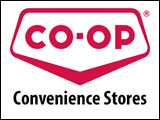The Chair of Manitoba Pork Council is urging the U.S. government to recognize the concept of substantial transformation of products as one possible option for bringing it’s Mandatory Country of Origin Labelling legislation into compliance with international trade rules.
Last November a World Trade Organization panel investigating complaints from Canada and Mexico over U.S. Mandatory Country of Origin Labelling determined the U.S. law affords imported livestock treatment less favorable than that afforded like domestic livestock and is inconsistent with U.S. trade obligations.
Last week the World Trade Organization Appellate body hearing a U.S. appeal of the November ruling upheld that finding.
As a result the U.S. now has 15 months to bring the legislation into compliance or face retaliatory tariffs.
Karl Kynoch, the chair of Manitoba Pork Council, says the ruling shows our trade laws are working and he hopes it will lead to a restoration of business relationships involving Canadian and U.S. producers.
Going forward it’s really in the hands of the Americans right now to see how they move forward to meet those obligations.
Some of the things we’d like to see is, in trade law when product moves back and forth across the border, there’s a rule that if it’s substantially transformed in the other country then it becomes a product of that country.
We look at a little pig when it goes down there at three weeks old and it basically puts on 98 percent of its weight in the U.S., it’s fed U.S. grain and it’s processed with U.S. food safety rules by U.S. people in their plants, that should be able to be labeled product of U.S.
Those types of things there, using the law of substantial transformation, that might bring a resolve and again satisfy producers on both sides of the border.
Kynoch notes the legislation has caused a lot of damage to pork producers in Canada and the U.S. and he suggests the sooner we can get this issue resolved, the sooner we can restore the trade relationships between pork producers on both sides of the border.



